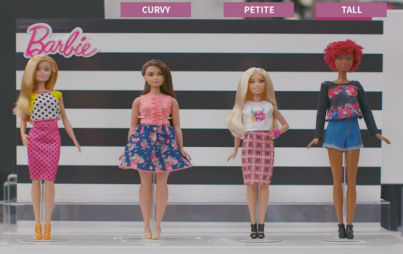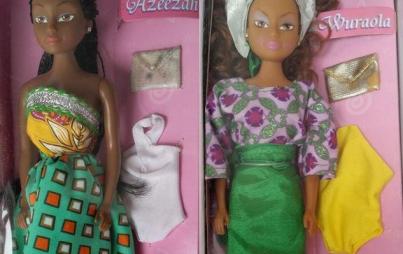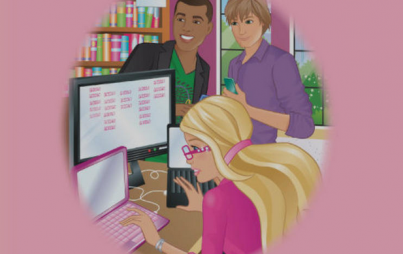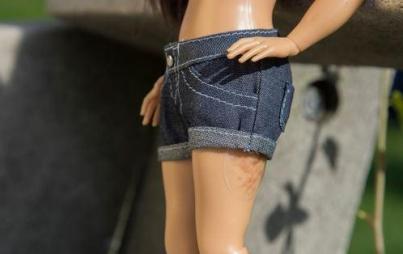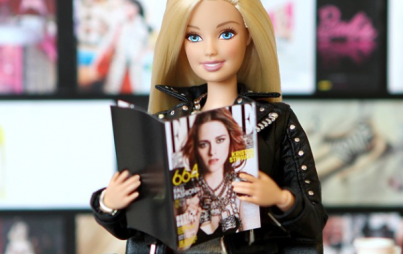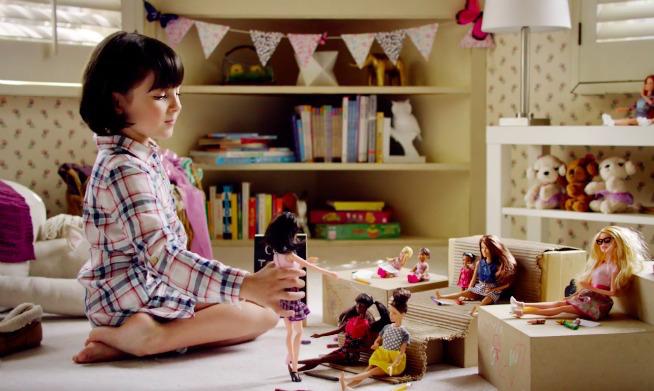
Photo credit: Barbie.com
Mattel’s brand new video featuring empowered little girls will make you cry. But will the toy industry ever change?
When I was a little girl, I wanted to be a model. I have no idea how a farm girl from the Midwest got that idea in her head, but I remember thinking that if you were beautiful and everyone wanted to take your photo, you must be happy.
If I couldn’t be a model, I wanted to work as a cashier in a grocery store. I can still remember the envious glee with which I would watch the check-out ladies pushing all the buttons and popping open the cash drawer with a ding.
It should come as no surprise, then, that my most treasured toy as a kid was a Barbie McDonald’s play set. When I opened it on Christmas morning, I screamed and almost cried. It came with a little table, plastic food, a tiny soda dispenser and cups, and even a little cash register.
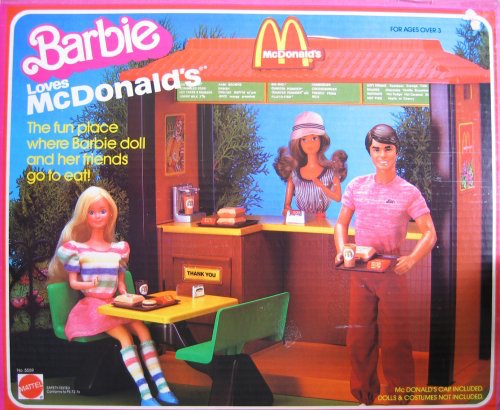
This was my first major Barbie product. I never wanted the Barbie Dream House or the pink Barbie sports car. All I wanted was to give my Barbie a job that I could picture myself doing. Preferably one with little gadgets and buttons to push.
In the years since that most blessed of Christmas mornings, I’ve grown wary of Barbie and her pink, pink, pink, pink world. I became a feminist in eighth grade, and started questioning the socialization of gender and the non-stop messaging I was receiving about being a “pretty girl.”
Even with all the privileges that come with fitting into the mainstream model of “attractive,” I learned early on that being a “pretty girl” meant people had lowered expectations for a woman’s intellect and skills. When I spoke up in class or had an unpopular opinion, other kids called me a know-it-all or a bitch. I’m sure other women my age can relate.
In that time, very few cultural icons were as maligned as Barbie, with her improbable measurements and passive occupations. Barbie lounged by a pool. Barbie went on dates with Ken. Barbie took an elevator even in her own house. Like everyone else, I jumped on the anti-Barbie bandwagon.
Surprisingly, my view of Barbie changed when I became a mom. I allowed my kids to play with Barbies, but only while I added context by asking questions about her, like whether Barbie is supposed to look like a real person, and whether Barbie could actually go out and play soccer in those high heeled shoes. As a mom of boys, it was more important for me to break down the notion of plastic perfection than to try to prevent Barbie from affecting their own body image.
It surprised my friends when I bought their kids requested Barbies for gifts and I went along with it. It may seem that as a feminist mom, I should be protesting these things, but I realize that Barbie is a part of our culture that’s here to stay. Boys and girls know her name, just as their parents and grandparents did. She’s been around for 56 years, after all. She’s not going anywhere, and my feeling is that she can be a fun toy if parents are willing to have conversations with their kids about body image and diversity while they play.
That’s why I was so intrigued when I heard that Barbie was launching a new short film that asks, “What happens when girls are free to imagine they can be anything?”
I went into it dubious, as I’m sure many of you will, too. But the truth is, the video is magic.
I cried the first time I watched it, and the second.
Why? I’m not sure, but I think it has to do with the pride with which these little girls carried themselves as they stepped into the roles of grown-ups with important jobs. They were fearless, they were funny, and they were clever.
Yes, they’re presumably actors, but they represent a new generation of girls who are empowered in a way I wish I could’ve been. Every time I spoke up, I did so with a sense of shame, a little voice inside of me echoing, “Who do you think you are to weigh in here?” or “What makes you think you’re so smart?” Deep inside, I always believed I was a fraud.
That shame might surprise people who knew me then. I spoke up a lot. but I always did it with a secret sense that I didn’t really deserve to have my voice heard. I even dealt with panic attacks while writing my novel last year, overcome by the question, “Who do you think you are to be doing something like this?”
But these girls? No shame, just pride.
Will this beautiful little film fix all of Barbie’s problems? No. She’s still improbably shaped and impractically dressed. Barbie’s world is still primarily populated by able-bodied Caucasian dolls who conform to mainstream beauty ideals. She is still mostly about the kind of fashion that keeps women locked to the multi-billion dollar diet and beauty industries.

But for this moment, in this one little video, we get a glimpse of what our kids can have. Open-ended play where Barbie can be the professor, the veterinarian, the paleontologist, the coach, or the business mogul. And look how cute (and age-appropriate!) the Barbies in the video are dressed.
Let’s hope this is a beautiful new relationship between Barbie and girls: One where Barbie can be a role model, instead of yet another reminder of how our bodies and our beauty will never measure up.
We know you can do it, Mattel. More of this, please.


